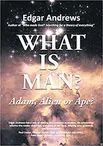Christianity has always recognised two basic 'impossibilities': the impossibility of unaided human salvation and the impossibility of unaided human knowledge. Paul says: 'no one will be declared righteous . . . by observing the law' and again, 'the world in its wisdom did not know God'.
As evangelicals we are familiar with the first, less with the second - which is serious not only for the inerrancy debate, but also for our whole experience, for the central issue of our time is not soteriology (salvation), important and necessary as that remains, but epistemology (knowledge). The West's current disorientation and distress flows naturally from its intellectual bankruptcy.
Enlightenment?
Briefly stated, the enlightenment two centuries ago repudiated divine knowledge in favour of human knowledge. The technological achievements of the new science, though not originating from the new ideas, nevertheless coincided with them. - it was scientific knowledge, remember. Hence the new 'humanism' appeared itself to be as successful as the new science, initially at least. God could safely be left out of the equation (a) because God was ;'unknowable' and (b) because the human race was enjoying real 'progress' for the first time.





